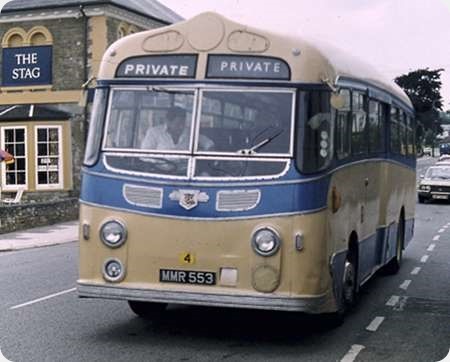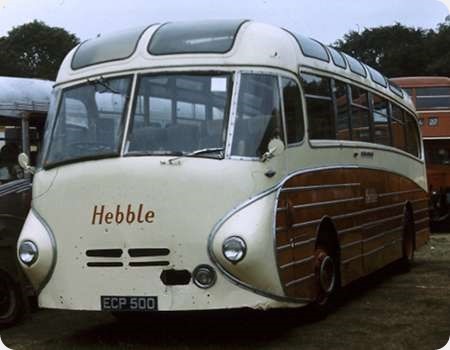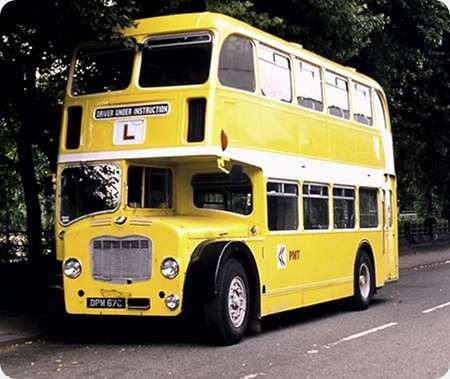E J Deeble, Liskeard – Leyland Tiger Cub – MMR 553 – 4
E J Deeble Liskeard
1955
Leyland PSUC1/2
Harrington C41C
E J Deeble operated some local services in the Liskeard area of Cornwall. In June 1978 this coach originally owned by Silver Star, Porton Down who sold out to Wilts and Dorset in the 1960s was operating a service outside Liskeard Railway Station – a commendable bus/rail link. Note the raised front headboard above the destination boxes where the Silver Star motif was originally fitted. This bus can’t have been ideal for local service work because of its centre entrance.
Photograph and Copy contributed by Ian Wild
04/05/20 – 05:52
This coach and its Silver Star fellow appears elsewhere on OBP: www.old-bus-photos.co.uk/
Roger Cox
05/05/20 – 05:54
I have been interested this operator since I first saw a picture of 2 of their Leylands, a Cub and Comet in the book ‘Buses in Camera South West’ by Norman Aish, published in 1977. About 25 odd years ago returning from Cornwall to the Midlands I decided to take detour to Upton Cross, there I found in a Portacabin office a Mr Deeble who explained to me he was the son of the founder. He went on to chat about the company saying where ever possible they bought Leylands . He also related the story of a new Comet chassis that was shipped to a local bodybuilder (non PSV, I can’t remember the name). When the vehicle was complete it was found to be too tall to exit the building. The answer was to remove the wheels and drag the vehicle out on its hubs! (I have no idea if this is true but it is what I was told). Mr Deeble also said that the single vehicle garage next door, was not only built by his father, but he made the bricks as well! I could have chatted for ages but as my wife was waiting patiently in the car I decided it best to resume my journey to the Midlands. So a random detour proved very successful on that occasion.
John Rentell
06/05/20 – 07:21
Further to my post above concerning the Deeble Leyland Comet with a locally built body I have come across the following details in a list kindly supplied by Roger Grimley some years ago.MRL 910, Leyland Comet with a 33 seat Mashford body new on 5/50 and withdrawn on 5/71 after accident damage. As I have not heard of Mashford previously I am wondering if this is the vehicle Mr Deeble was referring to as a local body builder. If anyone has a picture I’d love to see it.
John Rentell
06/05/20 – 07:23
On the hubs? That’s nothing: //archive.commercialmotor.com
Martin Ingle
07/05/20 – 06:42
John R, no picture, I’m afraid, but apparently Mashford Brothers were boat builders who had a go at building coaches for a while. They were/are based in Cremyll, Cornwall and it seems they are still in business today as boat repairers.
Chris Barker
08/05/20 – 06:19
John, there’s a photo of MRL 910 (when past its best) on flickr – https://flic.kr/p/RMTprx – new to Deeble 5/50. According to James Taylor in his book A-Z of British Bus Bodies, Mashford built six bodies at their boatyard at Cremyll, two in 1948, two in 1949 and two in 1955. The first two were Bedford OB, ECO 746 and ECO 997 for Millbrook Steamboat and Trading Company. The remaining four are captured by photographs on flickr. MRL 764, Austin for Hawkey, Wadebridge – https://flic.kr/p/xXkkAf MRL 910 as above and URL 838/9 for Willis, Bodmin – https://flic.kr/p/xYtRjG
David Williamson
10/05/20 – 06:52
David, thank you for sending these links. When the first Mashford body appeared on my screen I was not sure what to expect, however I think they look pretty good, identifiable by there own style side flashes. The Deeble Comet looks to have suffered serious damage to the off-side front, so understandably it was withdrawn, but apart from that it looks OK for a 20+ year old motor. If I can just master printing from FLICKR I can add these shots to my lists of these operators.
John Rentell



